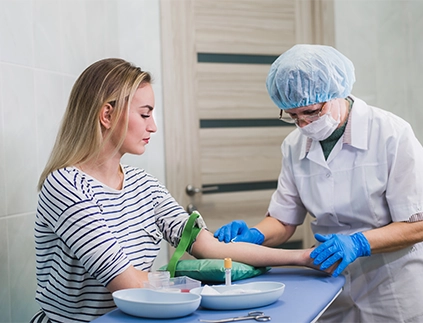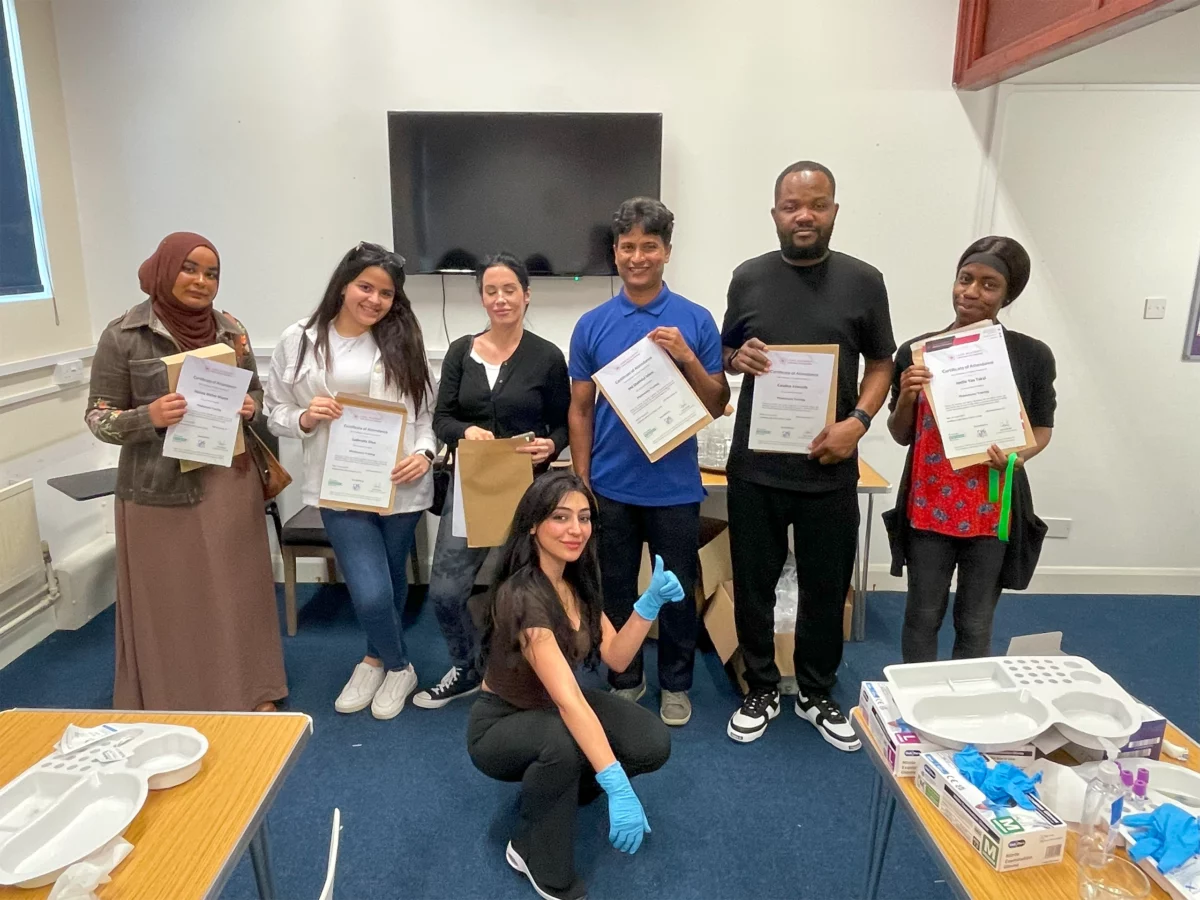Face-to-Face Training Session
Live training ensures the maximum effectiveness of your learning.
3 Instalment Plan on checkout
You have the option to choose from four easy instalment plans.
Learn From Industry Expert
Since you have to learn, why settle for less? Learn from the best.
Phlebotomy Training - CPD Certified and accepted by the Healthcare industry
CPD approved Practical Phlebotomy Training, offering hands-on phlebotomy workshops for individuals and hospitals, catering to a wide range of learners.
Our Phlebotomy Training Sessions
Phlebotomy is one of the most commonly performed invasive procedure. For this procedure to be performed safely and effectively, staff must possess the necessary up-to-date knowledge and skills.
3 hours online and 8 hours practical training is approved by CPD, ensuring that participants receive a high-quality education and are equipped with the necessary skills to excel in their phlebotomy careers. Participants will learn essential techniques, such as venepuncture and specimen collection, through interactive sessions and practical exercises, allowing them to gain confidence and proficiency in their abilities.

Register for the Next Phlebotomy Session Today!
Upcoming Phlebotomy Courses
Others Training by Phlebotomy Training Institue

Advanced Competency Phlebotomy Training
Practical Cannulation Training Sessions

Practical Catheterisation Training

We are Available at Multiple Locations:

London
Training Highlight
- 1 Day Face to Face Training
- 3 Hours Online Theoretical Learning
- 4 Instalments at Checkout
- Accredited by CPD UK
- Unlimited Training Materials for Practice

London
Training Highlight
- 1 Day Face to Face Training
- 3 Hours Online Theoretical Learning
- 4 Instalments at Checkout
- Accredited by CPD UK
- Unlimited Training Materials for Practice

London
Training Highlight
- 1 Day Face to Face Training
- 3 Hours Online Theoretical Learning
- 4 Instalments at Checkout
- Accredited by CPD UK
- Unlimited Training Materials for Practice

London
Training Highlight
- 1 Day Face to Face Training
- 3 Hours Online Theoretical Learning
- 4 Instalments at Checkout
- Accredited by CPD UK
- Unlimited Training Materials for Practice

London
Training Highlight
- 1 Day Face to Face Training
- 3 Hours Online Theoretical Learning
- 4 Instalments at Checkout
- Accredited by CPD UK
- Unlimited Training Materials for Practice
We are Available at Multiple Locations:
How often should phlebotomists update their skills and knowledge in the field?
Staff trained in phlebotomy/venepuncture must attend a venepuncture update every three years and, in order to maintain competency, carry out the skill on a regular basis. If their level of competency falls, they must seek re-training. Continuous learning is essential in healthcare.
Is phlebotomy a hard skill?
Knowing how to draw blood and handle patients is the hardest part of phlebotomy. But being good with people, knowing the correct procedure of blood draws, and making patients feel comfortable is important too. So, it’s a mix of skills and people management.
Are phlebotomists in demand?
Staff trained in phlebotomy/venepuncture must attend a venepuncture update every three years and, in order to maintain competency, carry out the skill on a regular basis. If their level of competency falls, they must seek re-training. Continuous learning is essential in healthcare.
What are common challenges phlebotomists face, and how can they overcome them?
Staff trained in phlebotomy/venepuncture must attend a venepuncture update every three years and, in order to maintain competency, carry out the skill on a regular basis. If their level of competency falls, they must seek re-training. Continuous learning is essential in healthcare.
Why advanced phlebotomy competency training is important?
Staff trained in phlebotomy/venepuncture must attend a venepuncture update every three years and, in order to maintain competency, carry out the skill on a regular basis. If their level of competency falls, they must seek re-training. Continuous learning is essential in healthcare.
Will I Get Accredited Certification After the Phlebotomist Training Program?
Staff trained in phlebotomy/venepuncture must attend a venepuncture update every three years and, in order to maintain competency, carry out the skill on a regular basis. If their level of competency falls, they must seek re-training. Continuous learning is essential in healthcare.
Does the Phlebotomy CPD UK Accredited Certification have any Value in the UK?
Staff trained in phlebotomy/venepuncture must attend a venepuncture update every three years and, in order to maintain competency, carry out the skill on a regular basis. If their level of competency falls, they must seek re-training. Continuous learning is essential in healthcare.
What is the difference between Basic phlebotomy training and Phlebotomy Competency Assessment Training?
Staff trained in phlebotomy/venepuncture must attend a venepuncture update every three years and, in order to maintain competency, carry out the skill on a regular basis. If their level of competency falls, they must seek re-training. Continuous learning is essential in healthcare.
